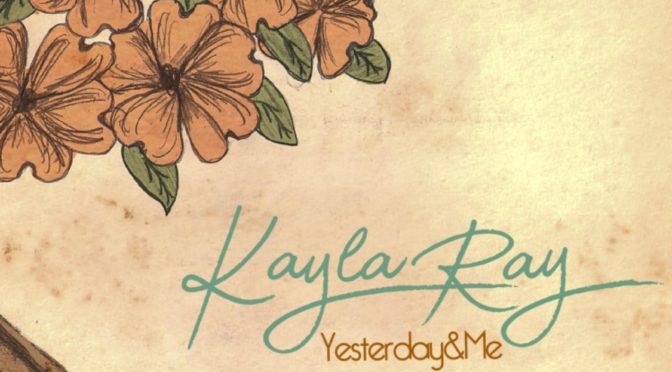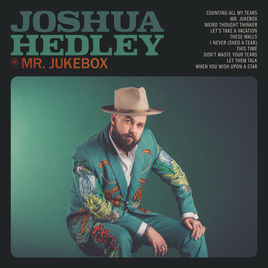Rating: 9/10
Jason Eady’s is a name I want to shout from rooftops and post on billboards, and if you ask me to name an underrated traditional artist getting criminally overlooked in 2018, I’ll say Eady every time. If Keith Whitley was his generation’s shot at Haggard and Jones, as Garth Brooks stated in his Country Music Hall of Fame induction, then Jason Eady is this generation’s shot at Keith Whitley, with a voice so pure and filled with emotion and absolutely born to sing traditional country music. There is a comfort in his voice and a talent in his pen rivaled by few, and this remains true album after album, as he continues to project great music out into the atmosphere without ever a lapse in quality. And yet the mainstream will never take notice, and even many independent fans won’t pay proper attention and give him the respect he is due, for Eady is not the country soul hybrid of Chris Stapleton or the rock/Americana blend of Jason Isbell, or even the upbeat Red dirt of Turnpike Troubadours. He’s too country for the success and recognition enjoyed by those artists, and it’s a shame because in a just world, Jason Eady would be a household name.
The pen of Jason Eady, as I mentioned, is his greatest strength. On any given day, you can pop in any of his previous three records and find something new and hidden in the lyrics. His turns of phrase are sneaky and riddled with deeper meaning, infused with subtlety and depth of emotion so that even months later, there’s something fresh to uncover. And yet, for all that, this new album isn’t really that way, the writing being more straightforward and direct. It’s not your typical Jason Eady record in that sense; the songwriting is more simple, though still great, and there’s not really a moment where you’re taken completely aback by the brilliance and poetry of a lyric like on some of his more recent material.
Yet I Travel On earns its place alongside all those other great Jason eady albums, and even above many of them–in fact, I would argue this is his best album aside from Daylight and Dark, which is my favorite record of all time–and it’s because of the sound and the instrumentation. seeing Eady live is a special experience and one that any fan of his or of live music in general should seek out. And now we get to hear this live touring band on an album, except made even better with the added harmonies of Courtney Patton that enhance every Jason Eady release. The whole thing was cut live in the studio, everything feeling loose and organic and vibrant. It’s all infectious and upbeat, the way you hear these songs out on the road. Bluegrass player Kevin Foster, who plays lead guitar and fiddle in Eady’s touring band, always adds so much to these songs live, and it’s great to hear that unleashed on a record. Not to mention the added bluegrass flair from Rob Ickes and Trey Hensley, two badass bluegrass pickers in their own right called upon to add flavor and vitality to this record.
And it was just the right time to add all these flourishes too, for as its title suggests, this album is very much a tale of the road, of restless characters passing through on their journeys. As I said, there isn’t one song or lyric that will blow you away, but the whole thing is injected with this rambling spirit that just works so well. We have songs like “That’s Alright” and the title track, where the narrators are trying to find themselves as they travel from place to place. In “She Had to Run,” our heroine is escaping abuse, leaving as fast as she possibly can because that’s the only thing left for her to do. And then there’s “The Climb,” where the man’s journey is metaphorical–he’s following a dream, and he’s reached the point on the mountain where he’s gone too far to turn back but can’t really reach the top. It’s just such a simple yet profound line when Eady sings, “he’s not lost, he just don’t know what to do.” I think we find ourselves in this position so often in our journey, at a crossroads and not knowing which way to turn.
It all comes to a head musically and lyrically in “Pretty When I Die,” where all these bluegrass hints and flourishes finally come bursting out, and all the energy and uncertainty of the road comes pouring out right along with it. In this little tune, Eady declares that he doesn’t want to take an easy route or travel on a road he’s already been on before, and that at the end of this whole journey of life, he wants to “look like a man who tried.” He wants a story for every line on his face when he dies. The introspective companion to this song, and the one that shows off the best instance of Jason’s writing on this project, is “Happy Man,” wherein he lets us know that if he dies today, he would die happy, and that he’s thankful for all of the blessings in his life.
Jason Eady has been blessed with the kind of comfort and healing in his voice that almost can’t be explained, a comfort which makes his stories ones that you have to listen to over and over. When he sings of traveling through life and the struggles and challenges that that entails, you just want to pull up a chair and listen, and draw from that wisdom. There is a thoughtfulness in his pen that is unmatched, and even if it doesn’t come out in overly deep lyrics like in some of his earlier output, it’s there in the beauty and simplicity of a song like “Always a Woman.” It’s that comfort and wisdom that draws you into any Jason Eady record, but I Travel On sets itself apart because it’s also infectious and catchy and able to be replayed for months, even after you’ve been captured that first time by the writing.
As an Eady fan, I do wish there had been a moment here that blew me away lyrically, and for longtime fans, there isn’t really a moment like that anywhere. But this album holds its own in his discography because it brings an energy and musicality that didn’t exist on any of Eady’s other records. Sometimes there’s something to be said for simplicity, for just singing three chords and the truth, and that’s what Jason Eady delivers with I Travel On. And this is the album to show people who don’t know his music, for this is the one that can bring people in and turn them on to the greatness we’ve all had the privilege of knowing. Now go and listen to this fine record.


